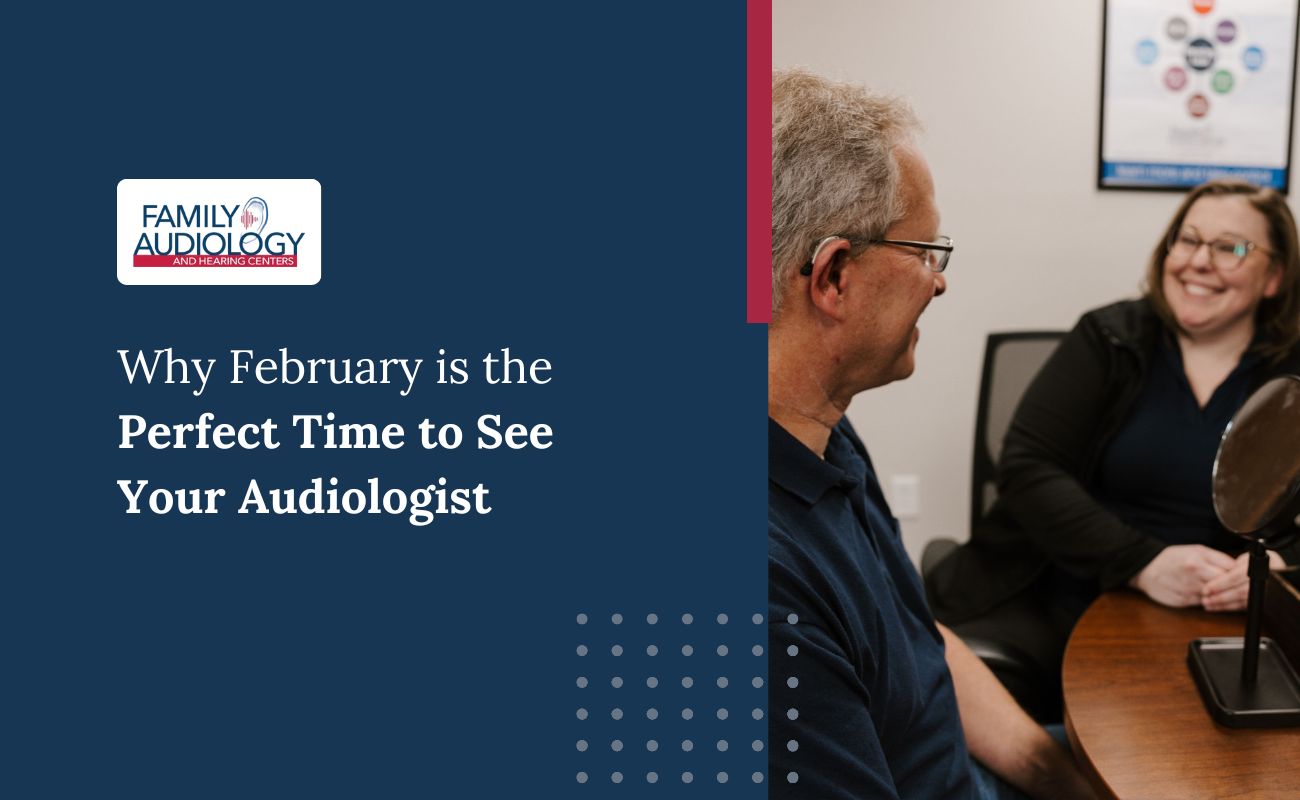Understanding the Link Between Balance Disorders and Hearing Health



Many people are surprised to learn that our ears do much more than just help us hear. In fact, our ears play a crucial role in maintaining our balance. At Family Audiology and Hearing Centers, we frequently see patients who experience both hearing difficulties and balance problems, which is why understanding the connection between these two systems is so important.
How Your Ears Help You Balance
Your ear is divided into three main parts: the outer, middle, and inner ear. While all three are involved in hearing, it's the inner ear that plays the vital role in your balance system.
The inner ear houses the cochlea (for hearing) and the main components of the vestibular system - one of the sensory systems that provides your brain with information about balance, motion, and the location of your head and body in relation to your surroundings.
This vestibular system works alongside your vision and proprioception (body position sense) to maintain stability. When these systems don't coordinate properly, balance disorders can develop.
Common Symptoms of Balance Disorders
Balance disorders can manifest in various ways. Symptoms may occur constantly or occasionally, and can appear suddenly or be triggered by specific factors like position changes, head movements, or visual and sound stimulation.
Some common symptoms include:
- Dizziness or vertigo (a spinning sensation)
- Unsteadiness when walking
- Falling or feeling like you might fall
- Lightheadedness
- Blurred vision
- Nausea
- Headaches
If you're experiencing any of these symptoms, it's important to consult with a healthcare professional, as they could indicate an underlying balance disorder.
What Causes Balance Disorders?
Balance problems and dizziness can stem from various conditions, including cardiovascular issues, head injuries, damage to the ear or vestibular system, inner ear disorders, sudden hearing loss, vision changes, surgical procedures, tumors on the acoustic nerve, and infections.
For many patients, the connection between hearing and balance becomes apparent when both systems are affected simultaneously. This often happens with conditions like:
Meniere's Disease
This inner ear disorder causes episodes of vertigo, fluctuating hearing loss, tinnitus (ringing in the ears), and a feeling of fullness in the affected ear. It's thought to result from abnormal fluid buildup in the inner ear.
Benign Paroxysmal Positional Vertigo (BPPV)
BPPV occurs when tiny calcium particles in the inner ear become dislodged and move into the semicircular canals. This causes brief but intense periods of dizziness triggered by certain head positions or movements.
Vestibular Neuritis or Labyrinthitis
These are inflammatory conditions affecting the inner ear or the nerves connecting the inner ear to the brain. They can cause severe vertigo, nausea, and sometimes hearing loss.
Acoustic Neuroma
This rare, non-cancerous tumor develops on the vestibulocochlear nerve, which connects the inner ear to the brain. As it grows, it can affect both hearing and balance.
How We Diagnose Balance Disorders
At Family Audiology and Hearing Centers, our approach to diagnosing balance disorders begins with a thorough evaluation. This typically includes:
- Comprehensive Medical History: We'll discuss your symptoms, when they occur, and any factors that seem to trigger or worsen them.
- Physical Examination: This includes an examination of your ears and testing your eye movements, which can provide clues about inner ear function.
- Hearing Tests: Since the hearing and balance systems are closely connected, a complete hearing evaluation is often part of diagnosing balance disorders.
- Specialized Balance Tests: Some balance tests require specialized equipment, and based on the results, our audiologists can make recommendations for treatment. These might include videonystagmography (VNG), which measures eye movements in response to various stimuli, or computerized dynamic posturography, which assesses how well you maintain your balance in different situations.
Treatment Options for Balance Disorders
Treatment for balance disorders depends on the underlying cause. In some cases, medical management such as surgery or medication may be necessary. Many patients also benefit from vestibular rehabilitation.
Vestibular rehabilitation is a specialized form of physical therapy designed to strengthen the vestibular system. It helps your brain compensate for inner ear problems through specific exercises that improve balance, reduce dizziness, and increase stability.
The Link Between Hearing Loss and Falls
Research has shown a strong correlation between untreated hearing loss and an increased risk of falls, especially in older adults. This connection exists for several reasons:
- Cognitive Load: When you struggle to hear, your brain dedicates more resources to understanding sounds, leaving fewer resources available for maintaining balance and spatial awareness.
- Reduced Spatial Awareness: Our ears help us orient ourselves in space by detecting sounds around us. Hearing loss can diminish this ability, making it harder to navigate safely.
- Vestibular System Changes: The same conditions that cause hearing loss can sometimes affect the vestibular system, directly impacting balance.
This is why addressing hearing loss is an important part of fall prevention, particularly for older adults. Properly fitted hearing aids can help reduce the cognitive load associated with hearing loss and improve spatial awareness, potentially reducing the risk of falls.
Protecting Your Balance and Hearing Health
Prevention is always better than treatment. Here are some steps you can take to protect both your hearing and balance:
- Protect Your Ears: Exposure to loud noises can damage the delicate structures in your inner ear. Use hearing protection in noisy environments.
- Stay Physically Active: Regular exercise helps maintain good balance and overall health.
- Manage Chronic Conditions: Conditions like diabetes and high blood pressure can affect both hearing and balance, so proper management is essential.
- Get Regular Check-ups: Annual hearing evaluations can help detect problems early. If you're over 60 or have a history of balance issues, regular balance assessments are also recommended.
- Stay Hydrated: Dehydration can sometimes trigger dizziness and affect inner ear function.
How Family Audiology and Hearing Centers Can Help
At Family Audiology and Hearing Centers, we offer comprehensive audiology services. We are committed to helping our patients regain their confidence and stability, allowing them to live a fulfilling, active lifestyle.
Our approach includes:
- Comprehensive Evaluation: We conduct thorough assessments to identify the root cause of your balance issues and any related hearing concerns.
- Personalized Treatment Plans: Based on your evaluation, we develop individualized strategies to address your specific needs.
- Education and Resources: We help you understand your condition and provide resources for managing symptoms at home.
Schedule Your Assessment Today
Our team of experienced audiologists and hearing specialists understands the complex relationship between hearing and balance. We have the expertise and technology to properly diagnose and treat a wide range of balance disorders. If you're experiencing dizziness, unsteadiness, or other balance issues—especially if they're accompanied by hearing difficulties—we encourage you to schedule a comprehensive evaluation at Family Audiology and Hearing Centers. With 17 locations across Ohio, we're here to help you regain your stability and confidence.
Discover the Latest Articles
Stay informed with our informative articles.

Why February is the Perfect Time to See Your Audiologist
.jpg)
What Your Audiologist Checks During a Comprehensive Hearing Evaluation

How AI Technology Is Transforming Hearing Aid Performance
Contact your local Hearing Aid Specialists
At Family Audiology and Hearing Centers, we strive to be there for all your family’s hearing needs. Because of this, we have 17 convenient locations in Ohio and Wisconsin for you to visit. See which location is best for you and schedule an appointment today.


